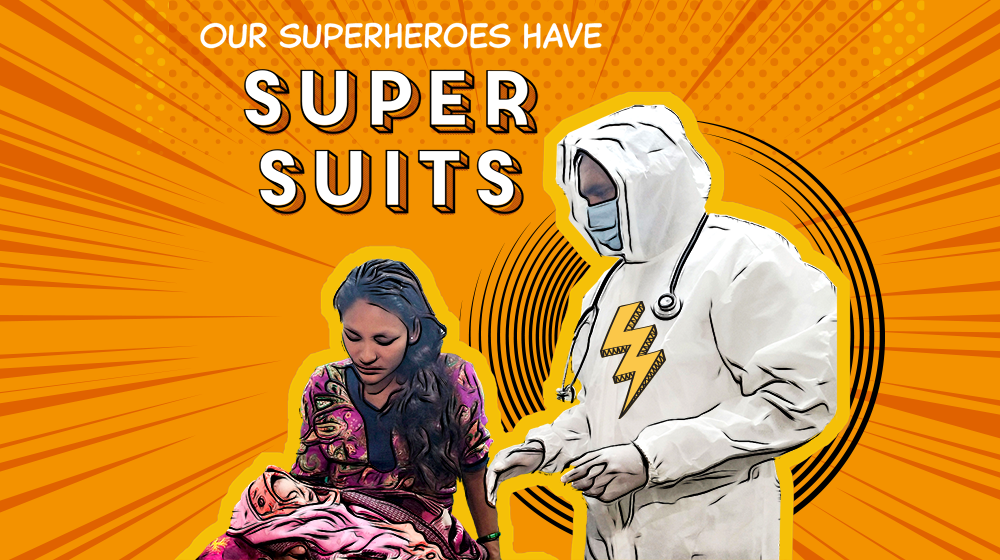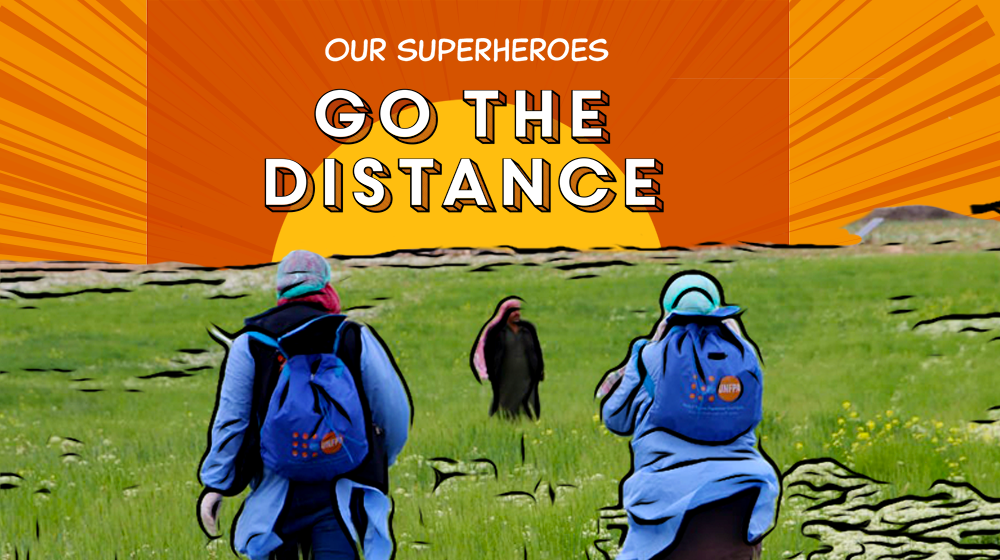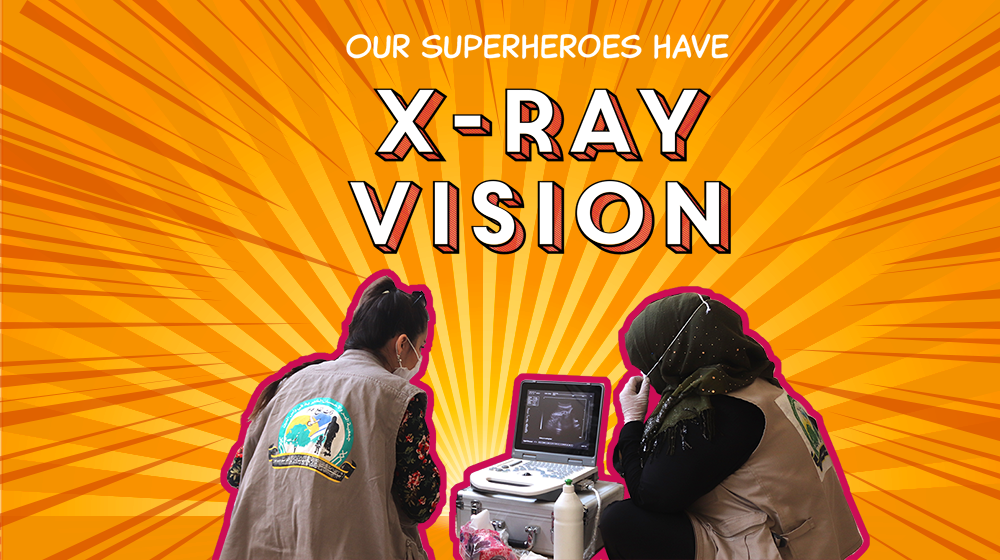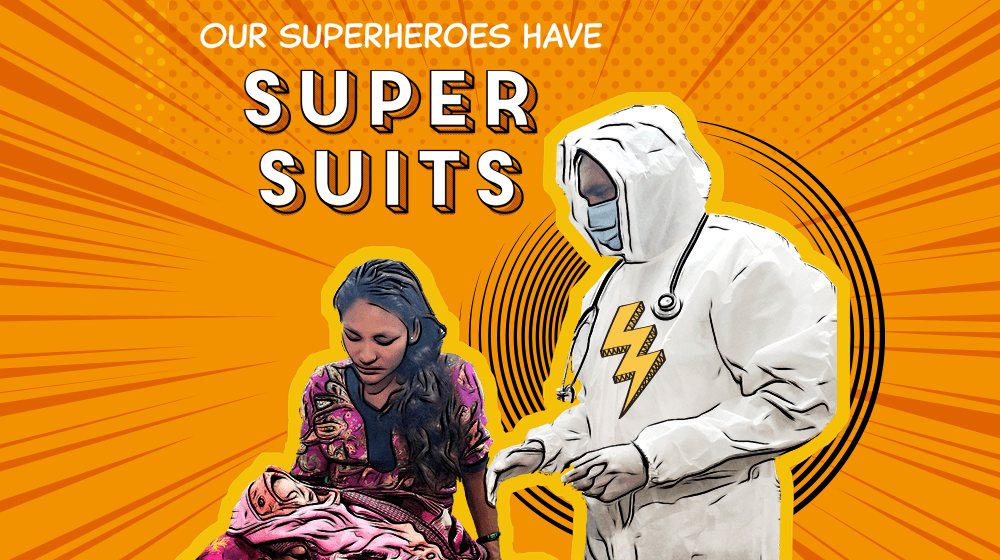
UNITED NATIONS, New York – Communities around the world are under siege – by the COVID-19 pandemic, violence, faltering economies, natural disasters and climate change. And “saving lives has never been more harrowing,” said UNFPA’s Executive Director, Dr. Natalia Kanem, in a statement released today.
Last year saw a record-breaking number of attacks on humanitarians, according to the Aid Worker Security Database. More than 480 aid workers were injured, abducted or killed. And health workers are seeing rising threats, as well. “Not only do health workers face exposure to the deadly coronavirus, but they are also enduring a rising tide of violence, with attacks driven by fear and misinformation,” Dr. Kanem said.
This year, on 19 August, World Humanitarian Day, UNFPA calls on the public to recognize the extraordinary sacrifices and tireless service of these real-life heroes.
Khadeeja Qasem is one of them. She is a midwife in war-torn Yemen, where health facilities have been damaged, and many health staff are going without pay. “Besides the conflict and displacement, coronavirus is spreading, too,” she said.
“I am financially responsible for my family. I am also pregnant. If salary cuts continue, I will have to find a new job,” she added.
Despite these hardships, she is committed to the welfare of those she serves.
“Last week, we received a woman in terrible condition, who needed urgent treatment but couldn’t afford to pay for the medicines,” she recalled. “So I bought medicine with my own money to save her life.”

Rising to the challenge
The global pandemic has killed more than 770,000 people. Forced displacements from conflict, violence and persecution are at an all-time high. Heroes like Ms. Qasem have never been more needed.
And people around the world are rising to the challenge.
In Bosnia and Herzegovina, Saria Aboukaf leads programmes to empower migrants and refugees. Lockdowns and supply chain disruptions are taking a toll, she said.
“The work of humanitarian workers in the field has been made much more difficult due to protection measures and adjusted work protocols that have occurred in light of the new situation with COVID-19,” she explained.
But she and her colleagues say they are finding solutions because the cost of inaction is too great.
"The one thing that stresses me the most, and that applies to all of the health workers, is the death of the patients," said Snežana Bursać Aranđelović, an epidemiologist who worked on the COVID-19 response with UNFPA in Bosnia and Herzegovina.

Superheroes in need of support
Aid workers and health professionals are also calling for support.
In many places, health staff are overwhelmed and underresourced, and face heightened risk of exposure to the pandemic.
“One of the biggest challenges is that there aren’t enough midwives to care for pregnant women in isolation areas, and there is a need for more midwives to take care of women in isolation areas, but we must be safe ourselves,” said Thobekile Mpembe, a health worker in South Africa.
"What we fear is that health care providers might surrender to the coronavirus infection before we serve our community," added midwife Genet Azmach, who works in an Ethiopian health facility caring for COVID-19 patients.
UNFPA is working with partners around the world to support health workers with personal protective equipment, hygiene supplies and infection-control measures.
UNFPA is also helping aid workers and health professionals provide gender-sensitive care. With UNFPA’s support, health worker Mitraminu Dhakal is equipped to safely care for pregnant women and new mothers in Nepal. He ensures they have the information they need on disease prevention, family planning and related health services. “I look after gendered aspects of care and treatment,” he said.
UNFPA applauds these heroes, and the countless others, who have given their time, their energy – and, in some tragic cases, even their lives – in the service of humanity.
“We live in a world where heroes don’t wear capes, but many do wear masks and (face) shields. They protect the lives of those who give life. They heed distant cries for help and support women and girls in need,” said Dr. Kanem. “They are superhuman in their perseverance and compassion, and in their hope that, together, we can achieve a better world for all.”


